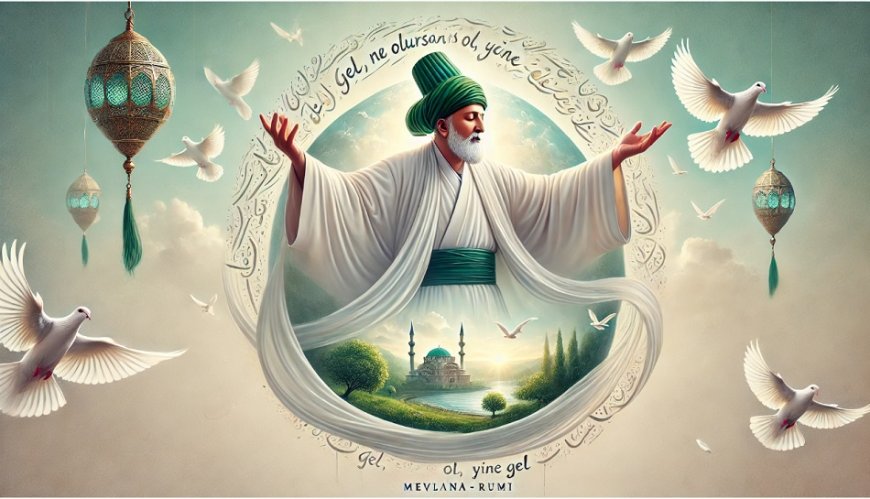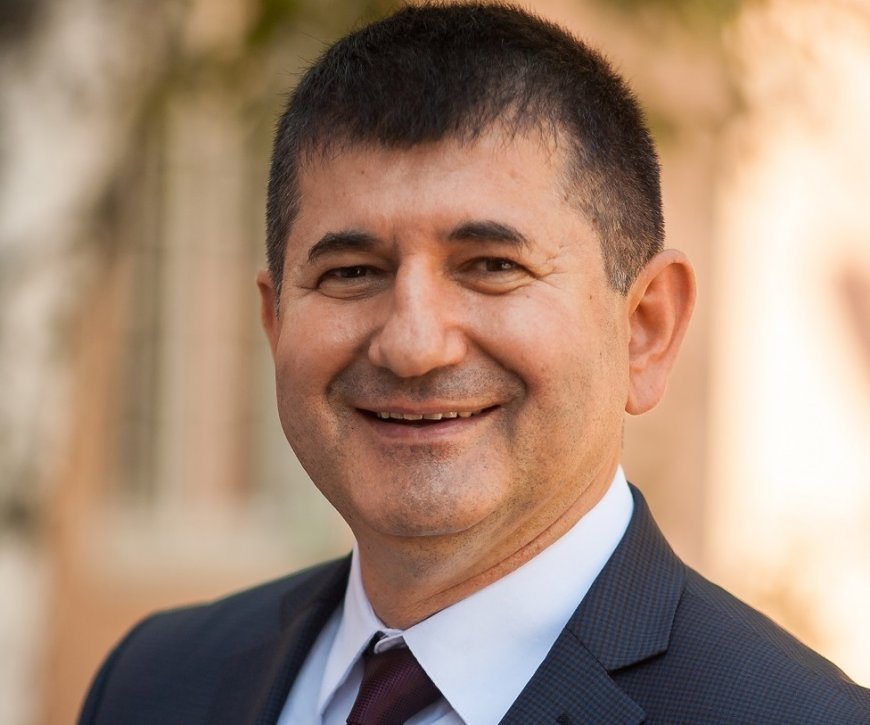Rumi's Timeless Wisdom: A Roadmap for Global Peace and Healing
Rumi's timeless teachings of gratitude, patience, and faith offer the modern world a roadmap to rediscover peace and unity amid conflict. Will humanity embrace his call?


WRITED BY YUSUF İNAN
Rumi's Timeless Wisdom: A Roadmap for Global Peace and Healing
In an age marked by division, war, and uncertainty, Rumi’s teachings of gratitude, patience, and faith offer humanity a timeless guide to rediscover peace and unity.
In a world overshadowed by conflict, inequality, and chaos, the timeless wisdom of Mevlana Jalaluddin Rumi resonates louder than ever. His teachings remind us that even the deepest struggles will fade, and healing is possible through gratitude, patience, and faith. Leaders, thinkers, and citizens alike are once again turning to Rumi’s universal message for answers to humanity's greatest challenges.
Rumi's Teachings: A Path to Rediscover Peace
The 13th-century Persian poet and philosopher Rumi dedicated his life to unity, love, and inner transformation. His words transcend cultures, borders, and generations. From the bustling streets of Istanbul to global peace conferences, Rumi’s voice remains a beacon of hope.
Rumi once said:
"Be like a tree and let the dead leaves drop."
This simple yet profound metaphor encourages humanity to let go of hatred, ego, and past conflicts. Only then can individuals, communities, and nations move forward toward healing and unity.
In today’s fractured world, Rumi’s call for self-reflection and love serves as a critical reminder: peace begins within. Leaders striving to bring stability must first embrace these principles and inspire their people to seek connection, not division.
A Message for Modern Leaders
As world leaders like Joe Biden, Vladimir Putin, Xi Jinping, and Volodymyr Zelenskyy navigate critical moments in history, Rumi’s message offers valuable guidance:
"Yesterday I was clever, so I wanted to change the world. Today I am wise, so I am changing myself."
Global challenges like war, climate change, and economic disparity cannot be solved through power struggles alone. Rumi’s wisdom suggests a shift in perspective: by transforming ourselves and seeking collective understanding, sustainable solutions become possible.
European leaders preparing for critical summits and global forums can adopt this philosophy as a foundation for peace-building efforts. The teachings of Rumi echo across the halls of history as a reminder that true leadership begins with humility, compassion, and the courage to listen.
Parallels in Western Philosophy and Modern Thinkers
Rumi’s message finds common ground with other global thinkers who advocated for peace and understanding:
- St. Francis of Assisi: “Lord, make me an instrument of your peace.”
- Mahatma Gandhi: “Be the change that you wish to see in the world.”
- Martin Luther King Jr.: “True peace is not merely the absence of tension; it is the presence of justice.”
These individuals, much like Rumi, understood that peace requires collective action and moral responsibility. Humanity cannot wait for solutions to arrive; we must create them.
A Call to Action: From Words to Unity
Despite centuries of wisdom and guidance from luminaries like Rumi, humanity remains trapped in cycles of war, greed, and inequality. This paradox raises urgent questions:
- Why does humanity continue to choose conflict over cooperation?
- How can we ignore the shared truth that we are all one family, descended from Adam and Eve?
Rumi’s words illuminate a path forward:
"Come, come, whoever you are. Come, even if you have broken your vows a thousand times. Come, yet again, come."
His invitation reminds us that hope is never lost. Nations can heal divisions. Communities can rebuild trust. Individuals can rediscover love and connection.
The Role of Technology and AI in Global Peace
In today’s digital age, artificial intelligence (AI) and technology hold enormous potential to support Rumi’s vision of unity:
- Bridging Cultures: AI tools promote cross-cultural understanding and communication.
- Predicting Conflicts: Advanced analytics can identify regions at risk of unrest, helping leaders take preventive action.
- Equity in Resources: AI-driven solutions can ensure fair distribution of food, water, and healthcare to those in need.
Technology, when guided by wisdom and ethics, becomes a bridge rather than a barrier—a tool to unite humanity instead of dividing it.
Conclusion: The Time for Unity is Now
Rumi’s timeless teachings offer humanity a clear choice: to embrace gratitude, patience, and faith or to remain lost in cycles of conflict. As world leaders, thinkers, and citizens reflect on their responsibilities, they must ask:
"Are we raising our words for peace, or letting division prevail?"
The solutions to humanity’s challenges lie not in weapons or wealth but in understanding, connection, and compassion. Rumi’s call to action remains as urgent today as it was centuries ago:
"Let the beauty of what you love be what you do."
It is time for the global community to honor this wisdom, embrace peace, and build a world where love and justice prevail.

YUSUF İNAN / PEACE AT HOME, PEACE IN THE WORLD (*)
Twitter : @Yusufinan2023
Instagram : yusufinan2023
Instagram : fondinan2016
Email : [email protected]
Website : www.medicentertv.com
(*) As Mustafa Kemal Atatürk, the founder of modern Turkey, once said, 'Peace at Home, Peace in the World.' This timeless principle serves as a guiding light for nations striving for harmony, coexistence, and global stability.





















